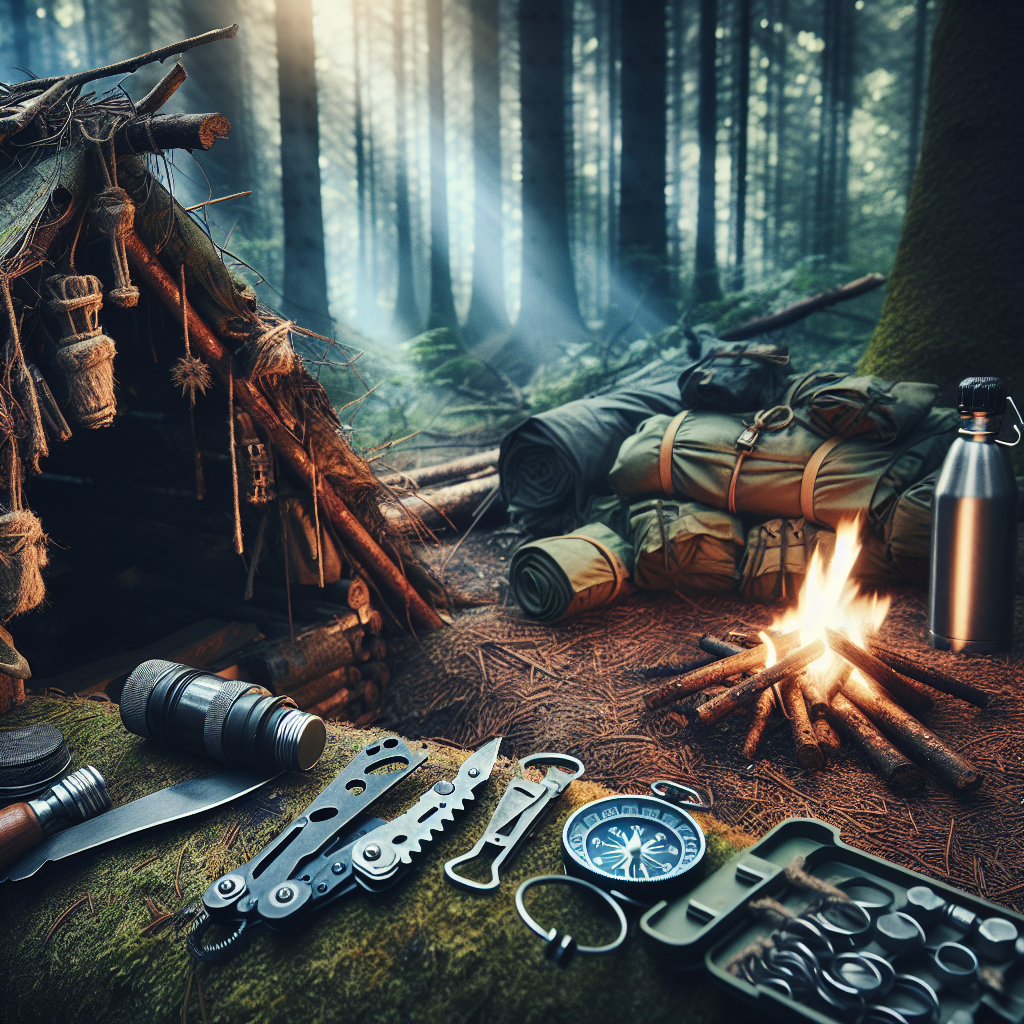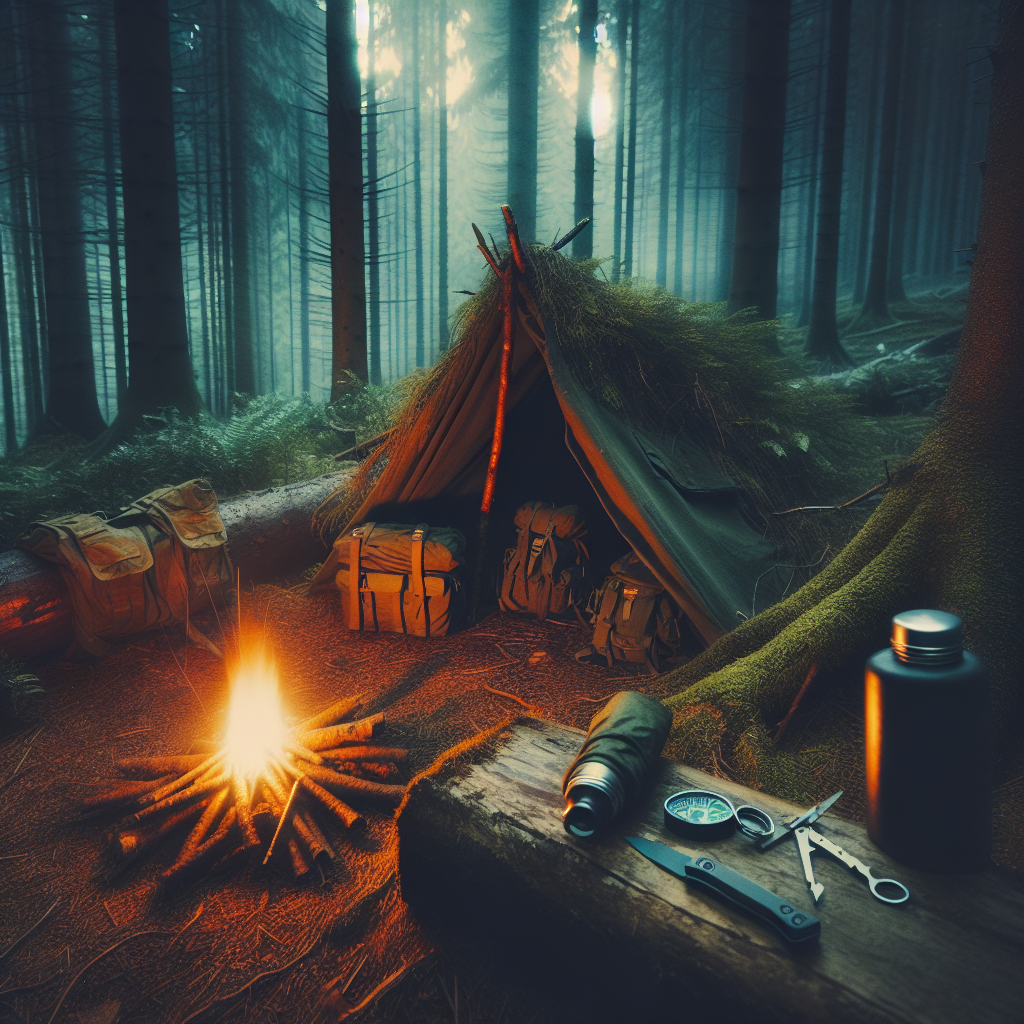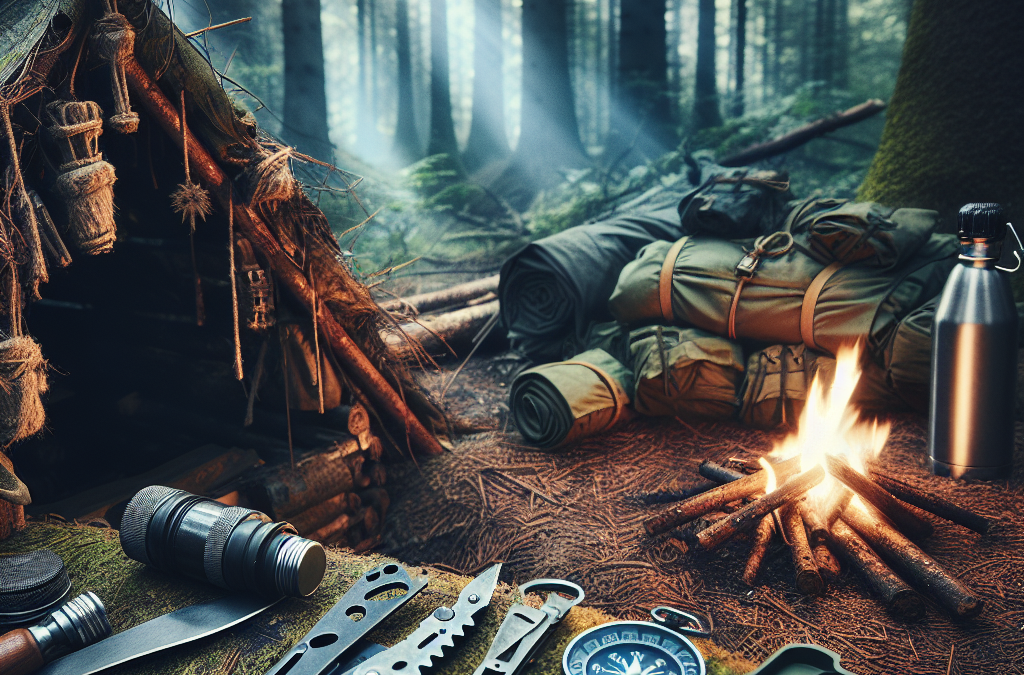Embarking on an adventure into the great outdoors? Gear up with “Wilderness Survival: Skills to Keep You Safe”. This comprehensive guide doesn’t just list the basic necessities, but also educates you on the vital skills you need to keep your cool and survive when Mother Nature decides to throw you a curveball. From starting a fire without matches to finding edible food in the wild, it’s an essential reading for all nature lovers and outdoor enthusiasts. Be equipped, be prepared, and embrace the wilderness with confidence.

Understanding the Basics of Wilderness Survival
Wilderness survival is all about each step you take to increase your chances of safety and survival in nature. It’s an essential skill set for anyone venturing into outdoor adventures.
Definition of Wilderness Survival
Wilderness survival refers to the ability to sustain life in any form of wilderness or remote location. It involves applying a set of skills, knowledge, and tactics that enable you to handle emergencies and stay alive with minimal resources until help arrives.
Key Wilderness Survival Principles
Surviving in the wilderness requires adherence to the basic survival principles. First, you must be able to maintain your body temperature to protect yourself from hypothermia or heat stroke. Second, you’ll need to find water, a critical element for staying alive. Third, you must be able to procure food to maintain your physical strength and vigor. Then, you’ll need to know how to create a shelter to protect you from the weather elements. Lastly, never underestimate the importance of first aid skills in a survival situation.
Importance of Mental Preparedness
Mental preparedness is a crucial element in wilderness survival. Being mentally prepared ensures you can execute your skills under stress, stay calm in difficult situations, and maintain hope regardless of the situation you’re in.
Preparation Before Heading into the Wilderness
Preparation is key to ensuring that you’re ready for any situation that may arise when you’re in the wilderness.
Doing Thorough Research About the Area
Before setting off on your adventure, you should take the time to research about the area. Understanding the area’s terrain, climate, and potential hazards can save your life.
Packing Suitable and Emergency Supplies
It’s important to pack suitable gear that can handle the harsh elements of the outdoors. Always pack emergency supplies, including medical kits, navigation tools, and water purification tablets.
Notifying others about your trip
Letting others know about your plans and timeline increases the chance of a successful rescue if you don’t return as expected.
Navigational Skills
Good navigational skills can help prevent you from getting lost and increase your chances of survival.
Using a Map and Compass
Having a map and compass at hand, and, more importantly, knowing how to use them is the cornerstone of good navigational skills. It can help you identify your location and chart your route accurately.
Identifying Landmarks
Being aware of your surrounding landmarks is crucial. Trees, lakes, mountain ranges, or any distinct formation can serve as useful guides.
Understanding Directions Using the Sun and Stars
Back in the day, people relied on the sun and stars for direction. Even today, these natural compasses can provide you valuable directional cues in times of need.
Finding and Building Shelter
In a survival situation, shelter is often a priority to protect you from harsh weather.
Selecting a Suitable Shelter Location
A good shelter location is often flat, away from water bodies, has sufficient resources, and is free of natural dangers like falling rocks.
Building Different Types of Shelters
There are various types of shelters, from lean-tos, snow caverns, to natural shelters like caves and tree hollows. Knowing how to build these different types of shelters depending on your situation is critical.
Advantages and Disadvantages of Each Shelter Type
Each shelter has its advantages and disadvantages depending on the location, weather, and availability of materials.

Fire-Making Skills
Fire serves multiple purposes in the wild – cooking, warding off threats, signalling, and keeping warm.
Collecting Suitable Firewood
Collecting dry wood of various sizes is important to start a fire. Branches, twigs, and various tree barks make good firewood.
Starting a Fire without Matches
Being able to start a fire without matches is a valuable skill. You can use methods like friction, using a flint or a magnifying glass.
Maintaining and Controlling a Fire
Keeping your fire alive and under control is as important as being able to start it. Too big, and it can be a hazard; too small, and it might not serve its purpose.
Securing Fresh Water
Staying hydrated is crucial in wilderness survival.
Finding a Source of Fresh Water
Finding a source of water is important in the wilderness – river, stream, or even morning dew on plants.
Purifying and Filtering Water
Consuming unpurified water can lead to illness. Filters, tablets, or simply boiling can help purify the water.
Collecting Rain Water
In the absence of accessible fresh water, knowing how to collect rainwater can be an effective way to hydrate.
Foraging for Food
Food is vital for maintaining energy levels and morale.
Identifying Edible Plants and Fruits
Being able to differentiate between edible and inedible plants can provide you with key nourishment.
Trapping and Hunting for Meat
Hunting and trapping techniques can leave you with a satisfying protein meal.
Fishing Techniques in Wilderness Survival
If you’re near a water body, fishing can be a great way to source food.
First Aid and Health Care
Knowing how to manage injuries and health issues is paramount.
Creating a Basic First Aid Kit
Carrying a first aid kit equipped with essential supplies can help manage injuries in wilderness scenarios.
Treating Common Injuries and Illnesses
Having the ability to treat things like cuts, burns, or insect bites could make your survival situation much more manageable.
Understanding the Signs of Hypothermia and Heat Exhaustion
Knowing the signs of hypothermia and heat exhaustion could be life-saving by prompting you to take appropriate action in a timely manner.
Communicating in Case of an Emergency
Proper communication can alert rescuers to your location.
Using a Whistle or Mirror to Signal Help
Using a whistle or a mirror to reflect light can alert people far away.
Creating Smoke Signals
Smoke signals are an effective way of providing your location to air search teams.
Understanding International Distress Signals
Using standard distress signals helps rescuers quickly understand your situation.
Dealing with Potential Wildlife Encounters
Encounters with wildlife can pose serious risks.
Understanding Animal Behaviors
Knowing how animals behave can help you predict and prevent dangerous encounters.
How to avoid dangerous wildlife
Noise and maintaining a respectable distance are effective ways to avoid attracting unwanted attention from wild animals.
How to respond if you encounter dangerous wildlife
Your response in a wildlife encounter can mean the difference between life and death. It’s important to know when to stand your ground, when to retreat and when to make yourself appear larger.

